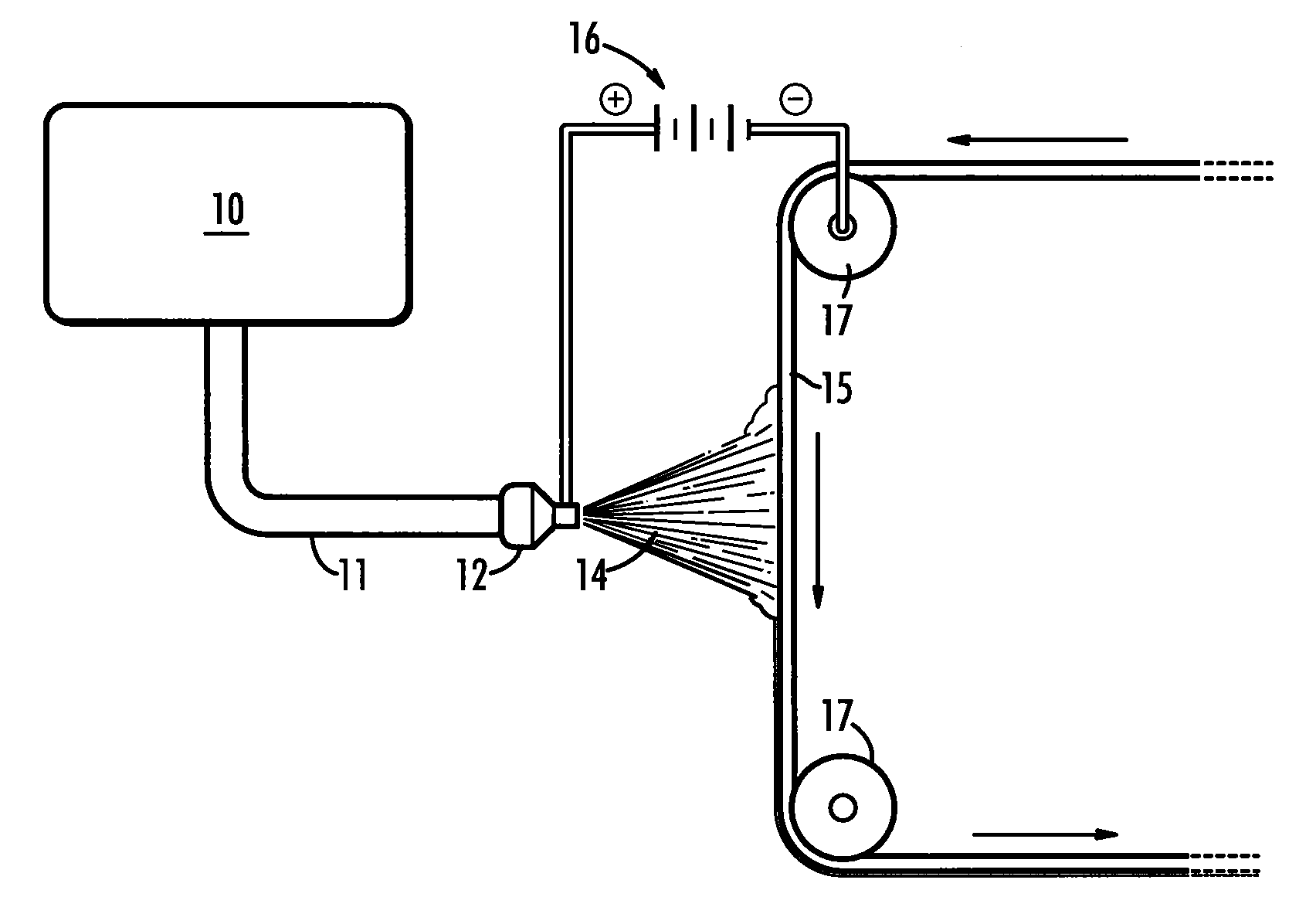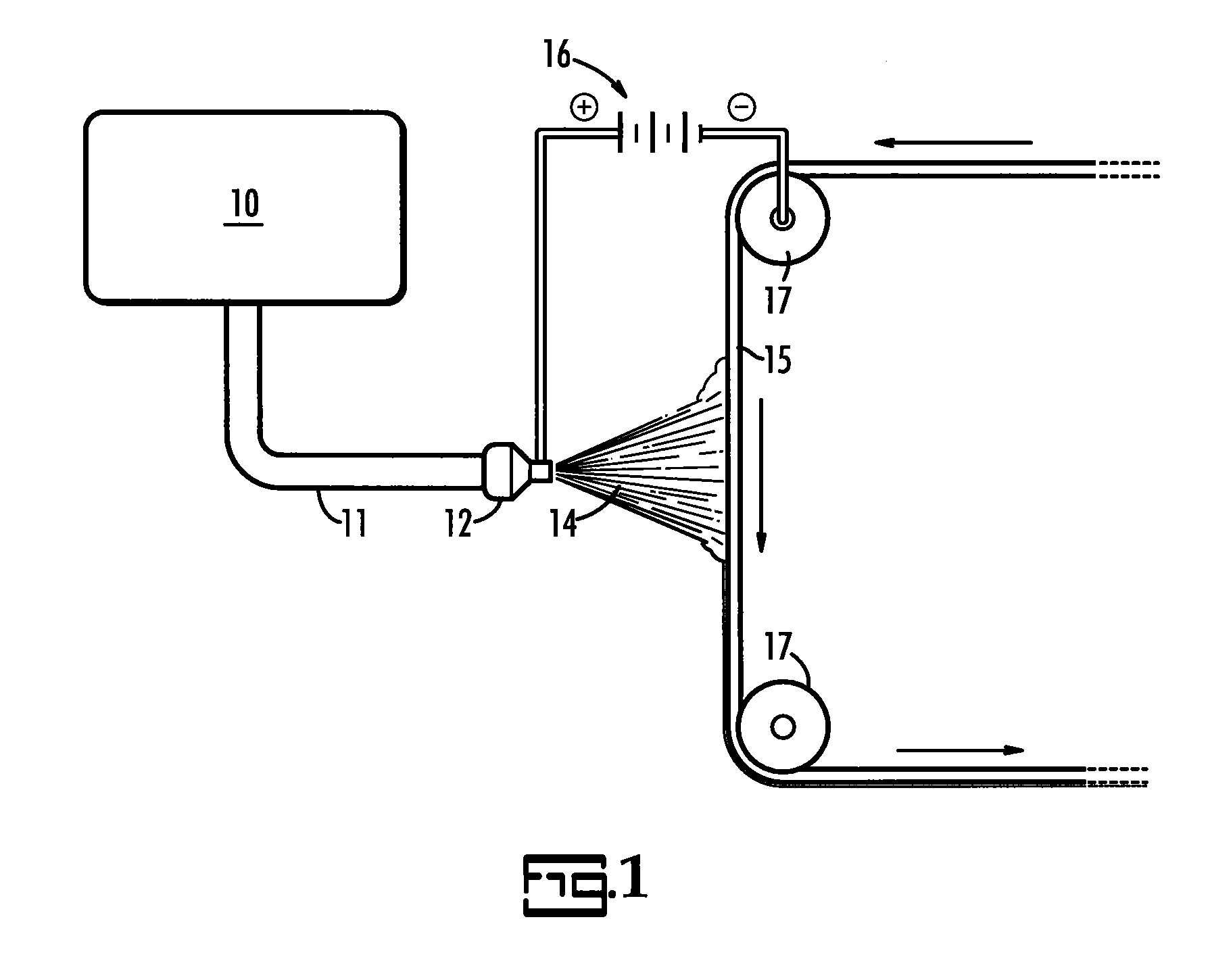Electrospinning of PTFE with high viscosity materials
a technology of electrospinning and high viscosity materials, applied in the field of electrospinning polytetrafluoroethylene (ptfe), can solve the problems of poor fiber formation, orifice clogging, and inadequate fiberization
- Summary
- Abstract
- Description
- Claims
- Application Information
AI Technical Summary
Benefits of technology
Problems solved by technology
Method used
Image
Examples
Embodiment Construction
[0013]The present invention is directed to a process for the electrostatic spinning of polytetrafluoroethylene (PTFE) into continuous fibers for the formation of non-woven sheets, membranes, tubes, and coatings with potential for multiple other applications and forms. In particular, the present invention is directed to electrospinning PTFE at a very high viscosity relative to the prior art in direct contrast to that which was previously considered feasible.
[0014]An electrostatic spinning apparatus is illustrated schematically in FIG. 1. In FIG. 1 a reservoir, 10, is loaded with a high viscosity dispersion as further described herein. A delivery system, 11, delivers the dispersion from the reservoir to a charge source, 12, which may be an orifice. A target, 15, is set some distance from the charge source, 12. A power source, 16, such as a DC power supply establishes an electrical charge differential between the charge source and target such that polymeric material, 14, is electricall...
PUM
| Property | Measurement | Unit |
|---|---|---|
| viscosity | aaaaa | aaaaa |
| wt % | aaaaa | aaaaa |
| wt % | aaaaa | aaaaa |
Abstract
Description
Claims
Application Information
 Login to View More
Login to View More - R&D
- Intellectual Property
- Life Sciences
- Materials
- Tech Scout
- Unparalleled Data Quality
- Higher Quality Content
- 60% Fewer Hallucinations
Browse by: Latest US Patents, China's latest patents, Technical Efficacy Thesaurus, Application Domain, Technology Topic, Popular Technical Reports.
© 2025 PatSnap. All rights reserved.Legal|Privacy policy|Modern Slavery Act Transparency Statement|Sitemap|About US| Contact US: help@patsnap.com



